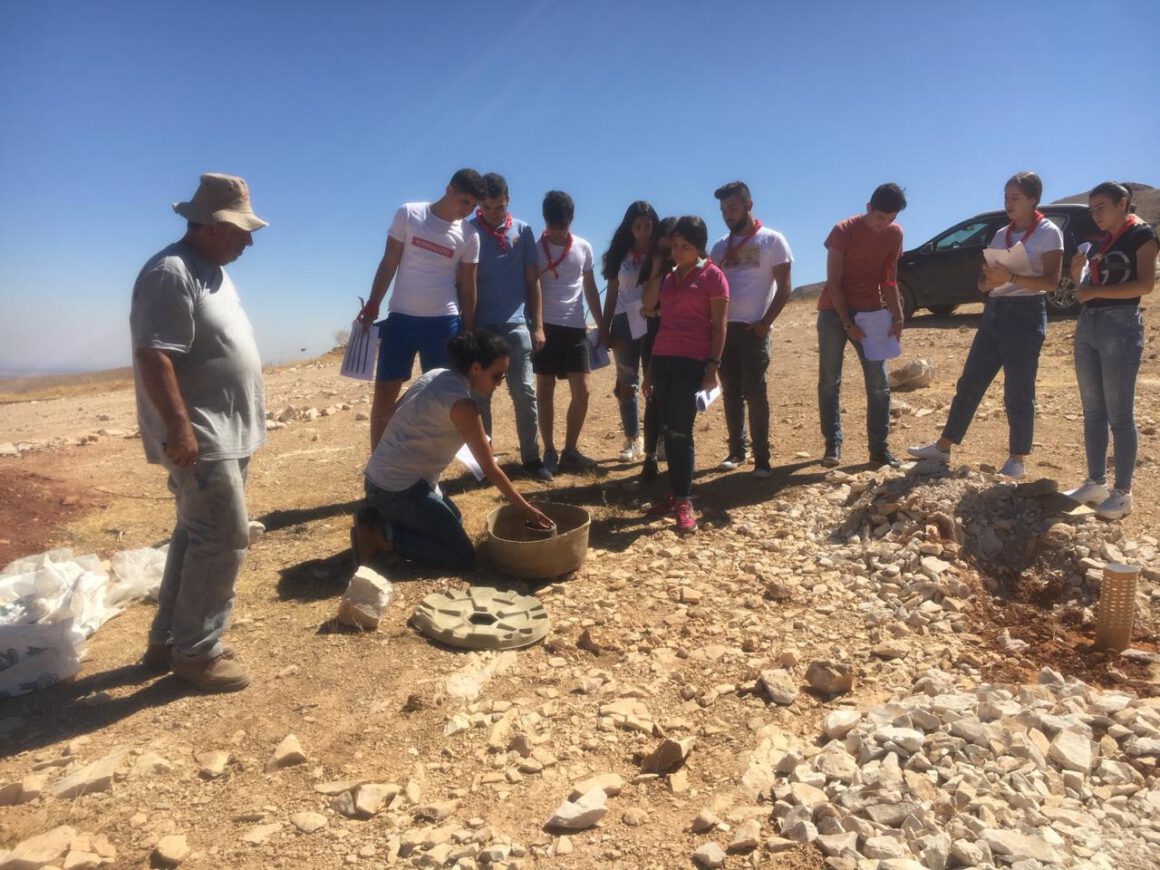October 2019 Edition: Introducing MENAQUA’s team of experts on land restoration in Lebanon
Cocoon planting in Ras Baalbak, 2019
By Stephanie Rizk, local agent in Lebanon for Menaqua Land Restoration
Land Restoration in Lebanon
Reforestation, afforestation, and agricultural projects are becoming highly demanded projects in Lebanon, but the water resource limitation is leading to a critical problem in different areas in Lebanon.
One third of the country suffers from poor degraded soils; dry climates indiscriminate grazing and social rejection due to the lack of workforce and this contribute to the high costs and low tree survival rates.
Nowadays, a large constituency of the civil society and private sector enterprises in the country are attentively invested in finding solution for the land restoration and the improvement of agricultural practices.
On the other hand, the reforestation projects are mainly dependent on irrigation, and the limitation of water resources are leading to huge conflicts as well as high irrigation costs. Therefore, stakeholders are in urgent need of technologies that can improve their agro-forestry activities and further their social, economic, as well as their environmental goals.
Accordingly, Cocoon planting system is presented by Menaqua, the designated distributor of LLC’s Cocoon technology in the MENA region. Menaqua introduced a technology that restore vegetation with minimal irrigation, high survival rates and, at low cost.
We started in Lebanon this spring with undertaking scientific testing of the cocoon technology in locations in Ras Baalbak, Arsal and Jabal Moussa. Our next step is to engage a broader base of stakeholders and, scale up the activities with resulting science.
Main Partners & Core Team Members
In this October Edition of Menaqua Newsletter we will give you a first introduction to our main partners and our core team members in Lebanon.
Land Life Company (LLC)
The developer of the Cocoon technology, Land Life Company (LLC), provides standard procedures for applying and monitoring the technology for use in planting campaigns, monitoring campaigns, and training sessions. In addition, the LLC digital platform assists in the monitoring of Cocoon performance and in stakeholder engagement.
American University of Beirut
Nature Conservation Center (AUB-NCC)
AUB is the project as well as the scientific research lead during the stage of pilot plantings. AUB-NCC is well situated to take on this role given its standing as the top ranked university in the Arab world, high regard across the MENA region for the institution’s findings, and the university’s secular and apolitical stance. AUB-NCC maintains a broad network of high profile and community actors and deep knowledge on the socio-environmental context of the country and region.
Stéphanie Rizk
Representative of MENAQUA in Lebanon
Stéphanie oversees Menaqua’s Land restoration project with oversight from Jeroen Kosterman (Menaqua director) in direction and scope. She assists in the planning and implementation of Menaqua’s Land restoration project, while providing data and summaries for later publication. Moreover, she reports the projects’ updates to the project manager.
Saphia Shamas
NCC Project Manager
Shamas is responsible for reporting to the PI. She reflects her ample experience in tree planting and project management in Menaqua’s land restoration projects in Lebanon. She conducts all administrative activities related to the project and liaises with Land Life and Menaqua partners. She handles all the planning and organization of the citizen science learning sessions.
Teamed up and ready for testing
 Cocoon planting in Jabal Moussa, 2019
Cocoon planting in Jabal Moussa, 2019
The first workshop in Lebanon was held at the AREC Research Center of the AUB, Bekaa Valley on April 2019. We explained and demonstrated how to plant trees with and without the Cocoon planting system. Selected seedlings were planted by the field supervisors in our designated locations. All seedlings now have been planted and the monitoring process has started.
In our next newsletter, we will be coming back to you with the first results of the monitoring process and progress of our mission. We will introduce to you the other team members and give word to one of the local field supervisors.
